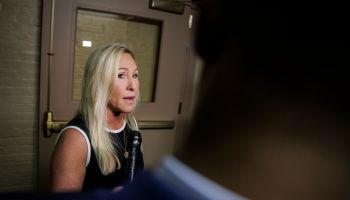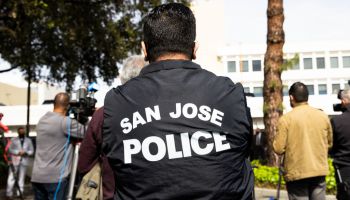PORT-AU-PRINCE, Jan 16 (Reuters) – U.S. President Barack Obama on Saturday declared one of the largest relief efforts in U.S. history to help Haiti four days after an earthquake killed up to 200,000 people and devastated the Caribbean nation’s capital.
Even as aid poured into wrecked Port-au-Prince, thousands of Haitians streamed out of the city on foot with suitcases on their heads or jammed into cars trying to reach the countryside to escape aftershocks and the threat of looting, and to find food, water and shelter.
Four days after the quake, logjams still slowed relief reaching victims and gangs of robbers had begun preying on survivors struggling without supplies in makeshift camps on streets strewn with debris and decomposing bodies.
Obama promised help as U.S. Secretary of State Hillary Clinton flew to Haiti carrying relief aid and the shell-shocked government gave the United States control over its main airport to bring order to aid flights from around the world.
“At this moment we’re moving forward with one of the largest relief efforts in our history to save lives and deliver relief that averts an even larger catastrophe,” Obama said, flanked by his predecessors George W. Bush and Bill Clinton, in the White House Rose Garden. “The two leaders with me today will ensure that this is matched by a historic effort that extends beyond our government.”
Haiti, the Western Hemisphere’s poorest country, has for years struggled with devastating storms, floods and political unrest. Around 9,000 U.N. peacekeepers have provided security in the country since a 2004 uprising ousted one president.
Hillary Clinton left for Port-au-Prince on Saturday to meet with Haitian President Rene Preval at the airport. Her plane was to bring in supplies and return with evacuated Americans.
Even four days after the 7.0 magnitude quake, aftershocks were felt every few hours in the capital, terrifying survivors and sending rubble and dust tumbling from buildings.
Trucks piled with corpses have been ferrying bodies to hurriedly excavated mass graves outside the city, but thousands of bodies still are believed buried under rubble.
U.S. rescuers worked through the night to dig out survivors from one collapsed supermarket where as many as 100 people could have been trapped inside. They were about to give up, when they were told a supermarket cashier had managed to call someone in Miami to say she was still alive inside.
“We have already collected around 50,000 dead bodies,” Interior Minister Paul Antoine Bien-Aime told Reuters. “We anticipate there will be between 100,000 and 200,000 dead in total, although we will never know the exact number.”
If the casualty figures prove accurate, the quake that hit Haiti on Tuesday and flattened much of its capital city, would be one of the 10 deadliest ever. Some 40,000 bodies have already been buried in mass graves, the government says.
LOOTING, FIGHTING FOR FOOD
Scores of police were on the streets of downtown Port-au-Prince on Saturday, rounding up looters in the biggest security operation since the earthquake struck, witnesses said.
A Reuters photographer saw police shooting in the air, grabbing and throwing people to the ground, and occasionally kicking detainees in parts of the city. But there was still no sign of widespread looting and riots that many feared.
Underlying the desperate nature of the quake aid effort, a U.S. helicopter landed in one open space, near the port, and threw out boxes full of plastic bags and bottles of water before taking off again.
Haitians flocked around the boxes to grab the water, many drinking immediately and sharing with family members and friends. Hungry residents fought each other for bags of foods handed out from U.N. trucks in downtown Port-au-Prince.
A senior U.N. official warned hunger will fuel trouble if aid does not arrive soon, although the law and order situation remains under control “for the time being.”
The U.N. mission responsible for security in Haiti lost at least 36 of its 9,000 members when its headquarters collapsed. Two top officials are missing.
Dozens of bloated bodies were still dumped in the yard outside the main hospital, decomposing in the sun. The hospital gardens on Saturday were a mass of beds with injured people, with drips hanging from trees and tubes.
The weakened Haitian government was in little position to handle the crisis. The quake destroyed the presidential palace and knocked out communications and power. Preval and Prime Minister Jean-Max Bellerive are living and working in the judicial police headquarters.
“I do not have a home, I do not have a telephone. This is my palace now,” Preval told Reuters in an interview.
The U.S. Navy hospital ship Comfort, a full service medical facility that can handle up to 1,000 patients, left the port of Baltimore on Saturday and was due in Haiti next week.
Read full story.
Article courtesy of: Reuters
















